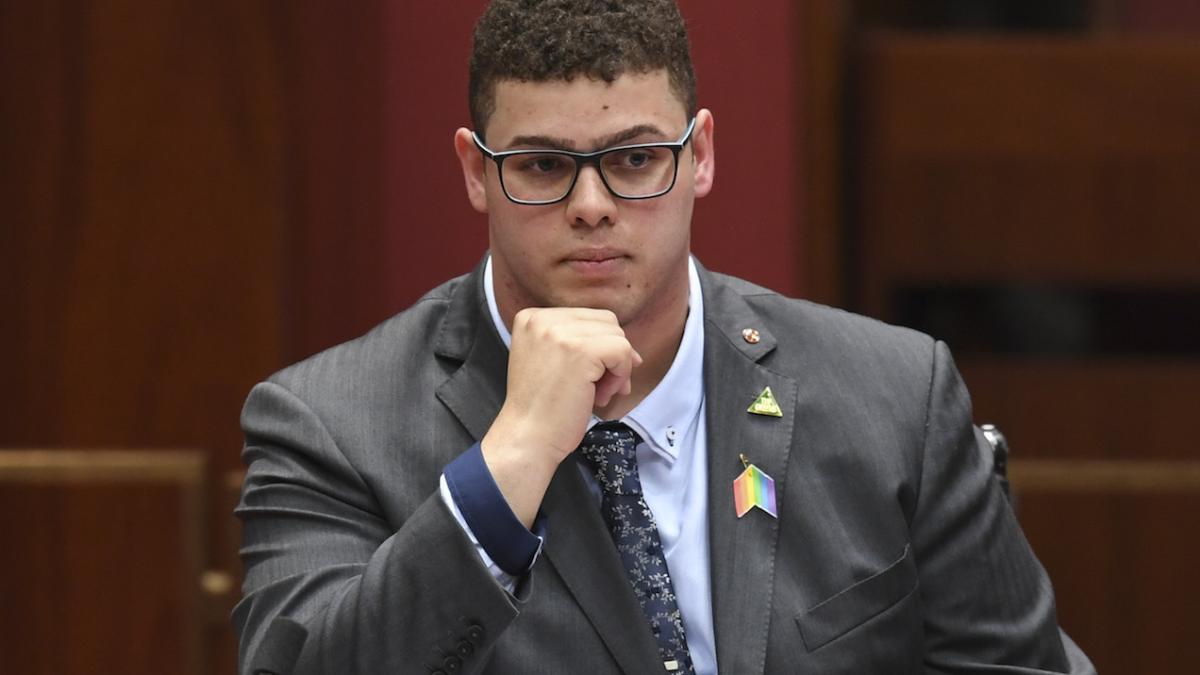
A new bill set to be introduced by the Greens next month could see 16 and 17-year-old Australians allowed to vote if they wished, as young people become more democratically engaged than ever.
Introduced by 23-year-old Senator Jordon Steele-John – who became the youngest ever Senator in Australia after being appointed to fill the gap left by Scott Ludlam – the bill would see the voting age in Australia lowered to 16-years-old.
“In the last few years we’ve seen a surge of young people making their voices heard about the issues that matter to them,” said Steele-John, pointing to 2017’s marriage equality debate as a prime example.
“It’s time the Australian political establishment stopped locking young people out; we care deeply about our future and the world around us and yet don’t get a seat at the table.
“It’s frustrating to me that young people aged 16 can work full time, drive cars, pay taxes, make choices about medical treatment and about their own bodies yet can’t vote or elect the people who make decisions affecting them.
“Lowering the voting age to 16 represents an exciting chance to reinvigorate the way we teach civics education by bringing democratic participation into the classroom in a whole new way.”
This Bill would see 16 and 17-year-olds given a “grace period” of engaging in politics, with no penalty notices given if they choose not to vote.
It would also see teens as young as 14 and 15 added to the electoral roll in preparation for their ability to vote upon turning 16.
And while there’s the obvious incentive for the Greens that young people typically lean left while casting their vote (and according to the 2016 Census, there were 1.4 million Aussies aged between 15 and 19), there’s also the fact that some young people feel completely shut out of politics as it stands.
Australia’s peak body for youth affairs – the Australian Youth Affairs Coalition (AYAC) – has been calling for a debate on this exact issue for years.
“Politicians think in terms of voters. Lowering the voting age will add more than half a million young people aged 16 and 17 to the electoral roll and give politicians an incentive to consider how the decisions they are making every day affect young people and their futures,” said AYAC chair Katie Acheson.
“We know that the younger people are when they first vote, the more likely they are to continue voting throughout their lives; including them at an earlier age as part of our national conversation and political process can only increase their civic engagement and understanding of Australian society and their place within it.”
Opposition Leader Bill Shorten also declared in 2015 that the voting age should be lowered to 16, saying that young people deserved the right the shape our laws and policies.
“My message to the Liberal party is let’s trust our young people because they’re the people who are going to have to deal with the decisions that we’re making right now,” he told the New South Wales Young Labor conference.
New Zealand flirted with the idea of lowering the voting age to 16 back in 2007, when former Aotearoa New Zealand Greens MP Sue Bradford introduced a private member’s bill. The discussion was brought up again by the Children’s Commissioner Andrew Becroft earlier this year in response to low voter turnout in the 18–29 year age group (voting is not compulsory).
Opponents in New Zealand argue that young people lack the maturity, life experience, civic knowledge and independence to vote, arguing that they’re too heavily influenced by their parents or teachers.
But as The Conversation pointed out, that argument isn’t exactly consistent with New Zealand’s inclusive electoral system, which allows other groups who may be heavily influenced (such as religious groups being influenced by religious leaders, or people with cognitive disabilities being influenced by their carers) to vote regardless.
Around the world, we’re seeing a trend in voting ages coming down. In the last decade, Argentina, Brazil, Nicaragua, some states in Germany and a canton in Switzerland all lowered the voting age to 16, while Indonesia and South Sudan allow 17-year-olds to vote. In the 2014 Scottish independence referendum, 16 and 17-year-olds jumped on their right to vote (a first in British politics), with three-quarters of the population doing so. And in the United States – where several states have considered bills to lower the voting age – we’re seeing teenagers take on Congress over gun reform with the #NeverAgain movement, despite most of them not yet being able to vote.
“Whether it’s in Australia or New Zealand, young people are proving their right to be included in the democratic process,” said Kiwi greens MP Chloë Swarbrick today, supporting Steele-John’s bill.
“This reform is just another example of how the Green movement is committed to realising the rights of our generation.”
Steele-John is set to introduce the bill in the Senate next month to be debated on June 18.



